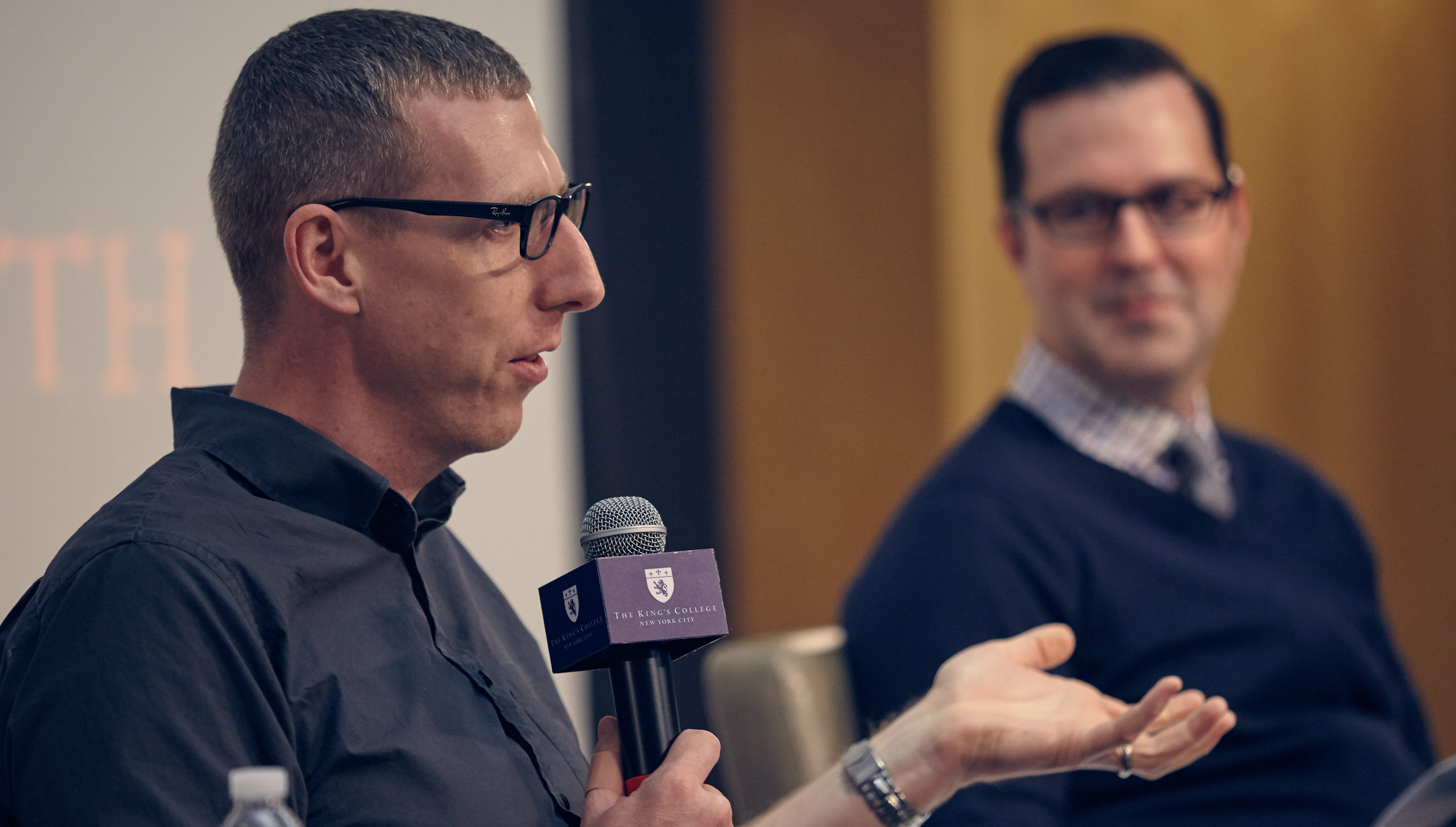King’s Adopts Statement on Academic Freedom
The new statement supports the freedom of all members of the College community “to discuss any problem that presents itself” and is modeled on the University of Chicago’s 2015 Report of the Committee on Freedom of Expression.

This summer, The King’s College approved and published a statement on academic freedom to support the freedom of all members of the College community “to discuss any problem that presents itself.” That phrase draws from the University of Chicago’s 2015 Report of the Committee on Freedom of Expression, which served as a model for the King’s statement.
The King’s academic freedom statement begins, “Because The King’s College is committed to free and open inquiry, it guarantees all members of The King’s College community the broadest possible latitude to speak, write, listen, challenge, and learn.”
Provost Dr. Mark Hijleh first proposed that the College consider adopting such a statement in fall 2019. Hijleh says, “The ability to openly and courageously debate difficult topics in history and society, with civility and mutual respect, is a key outcome of a liberal arts education.”
While the College has long been committed to these ideals, Hijleh says he saw a need for a statement which “reflects that understanding anew in ways that resonate with our times while also reaffirming what it means for us as a school animated by our Christian identity, our values, commitments, and character.” The academic freedom statement is designed to complement the Biblical-Theological Commitment to Unity in Diversity, published this June, as both express ideas central to the College’s mission.
Dr. Matthew Parks, then-associate dean of academic affairs, chaired the Faculty Development Committee which adapted the Chicago statement for the King’s community. The Faculty Development Committee included Prof. Dawn Fotopulos, Dr. Anthony Bradley, Prof. Chris Cragin Day, and Dr. Phillip Williams. This group presented a draft to the rest of the faculty in January. All faculty, without dissent, approved the final version in March. The President’s Cabinet, Executive Team, and Board of Trustees approved the statement in subsequent months.
Cragin Day says, “The purpose of a statement like this is to encourage free and open discussion of potentially controversial subjects. Fear inhibits the pursuit of truth, so it’s best to remove fear from the equation as much as possible in an academic community.”
The statement makes it clear that there are still appropriate limitations on the time, place, and manner of expression. In addition, speech may be restricted for reasons of confidentiality, privacy, or a genuine threat, for example, and the free expression afforded to faculty and staff operates within the bounds of Christian faith (all full-time College employees commit to creedal Christianity via the Statement of Faith). Yet these are seen as “narrow exceptions to the general principle of freedom of expression.” The statement is also careful to note that “The King’s College greatly values civility, and all members of The King’s College community share in the responsibility for maintaining a climate of mutual respect.”
A core assumption throughout the statement is the idea that debate and discussion are necessary for us to discern the truth and respond to wrong ideas.
Except in cases dictated by its institutional commitment to the College’s Statement of Faith, it is for the individual members of The King’s College community, not for The King’s College as an institution, to make those judgments for themselves, and to act on those judgments not by seeking to suppress speech, but by openly and vigorously contesting the ideas that they oppose.
Parks says, “The statement is noteworthy for the way that it defines and applies traditional principles and protections of academic freedom in the specific context of both halves of the TKC mission statement”—from preparing students to shape society in light of biblical truth to supporting faculty as they directly engage culture.
The academic freedom statement is posted on the website and is included in faculty, student, and employee handbooks.




